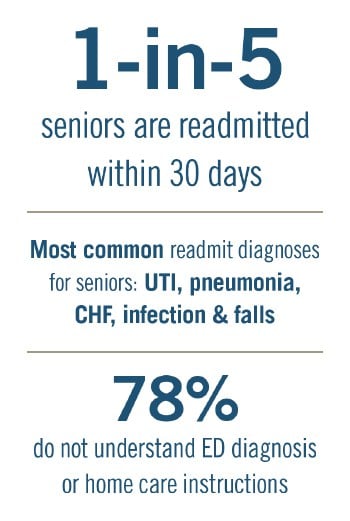Harold’s Story
Through the Right Combination of Skilled Services & Personalized Care, Harold Gained Back the Ability to Communicate
At the age of 83, Harold* suffered a stroke while living at home alone. The stroke left Harold with aphasia, a language disorder that affected his ability to speak, read and write. Harold’s family knew he was unable to return home alone safely so they turned to assisted living at a Senior Living Residences community.
SLR’s Whole Person Treatment Approach
Knowing the challenges that Harold faced with his aphasia, the care staff led by SLR Resident Care Director Sarah Miller worked with Harold’s family to develop a personalized care plan with the goal of improving Harold’s overall quality of life. This plan focused on decreasing frustration triggers and working to better his communication skills through specialized care and programming. Part of this plan included having the skilled nursing help of a local VNA work with Harold on new ways of communication through creating tools like photo books, picture slideshows and cue cards which all of the staff used to communicate with Harold.
Care & programming staff worked together to modify daily situations that could trigger Harold’s frustration. The programs that Harold enjoyed most were redesigned to take part in a smaller intimate group setting that would be less overwhelming. The routine of choosing meals off a daily menu was changed to present Harold with visually plated options. Harold’s personal care schedule was worked around his preferences.
Harold’s Progress to date…
Harold has had significant progress in his ability to communicate and comprehend. Through speech therapy, Harold started using words to associate with photos. He soon began to verbalize and rely less on visual cues.
Harold now enjoys small talk with fellow peers, needing some assistance with word finding from time to time. He continues to enjoy daily lifelong learning programs, reads the morning newspaper and chooses meals from a menu.“We needed to listen to Harold’s voice, even when it wasn’t there, to know exactly what he needed and to give him those opportunities to express his own choices.” said Sarah.
Is Your Senior Client or Patient a Good Candidate for Assisted living?
Is your senior client or patient a good candidate for Assisted living?
- Are they at risk of injury at home alone?
- Can they perform ADLs independently?
- Can they manage their own medications?
- Can they adhere to post-hospital discharge plans?
- Do they have adequate spousal/family support?
- Do they have memory loss or confusion?
- Do they have a lack of skilled needs to justify a 3-day hospital stay or acute rehab setting?
- Would they be more comfortable with VNA services in a home-like setting rather than a nursing home or rehab?
If the answer is “yes” to any of these questions, a transition to a more supportive living option like Assisted Living may be the best next step for your senior client or patient.
All the Services Your Senior Client/Patient Needs in the Environment They Want
- Assessments and Move-ins 7 Days a Week
- No Hospital Qualifying Stay Required
- Coordination of Follow-up Care, including Discharge Notes and Post-Discharge Physician Visits
- In-House Skilled Services Coordinated with VNA Include: Oxygen, Post Surgical Wounds, Insulin Management, Physical, Occupational and Speech/Language Therapy, Medication Reconciliation and Management and Nutritional Support
- Daily Nursing and 24-hour Certified Nursing Assistants for ADL support and immediate response to unscheduled patient care needs
- Physician and Nurse Practitioner “House Calls”
- Private Apartments with Private Bath in a Homelike Setting
- Research-Based Treatment Approach for Memory Loss, Isolation and Nutrition/Dehydration Needs
- A Socially Active Lifestyle

Discharging to an SLR Community
- Reduces Hospital Costs
- Ensures coordination & follow up on patient wellness care
- Removes readmission risk